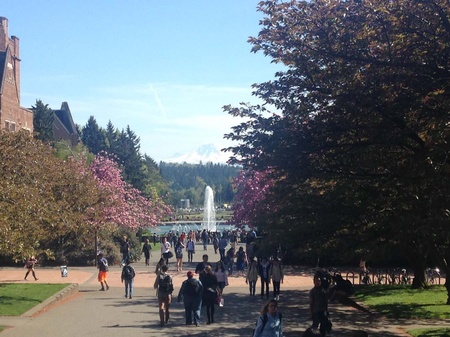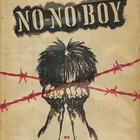Author John Okada portrays the inner conflict of the protagonist Ichiro while at the same time making the reader think about various problems in human society. The conflict arises from his interactions with the people he comes into contact with, including his family.
Among these characters, the presence of Kenji, a friend who appears in this chapter, is very significant and important to the story.
I visited the university where I once studied...
In the previous chapter, Ichiro meets his friend Freddie, who is also a No-No Boy, but he learns that Freddie, who lives a fleeting life, also has his own darkness inside him, and so he parts ways with him.
"One day I'll have a place to belong again. I'll buy a house, I'll love my family, I'll walk down the street holding my son's hand, and people will stop to talk to me about the weather and baseball and elections."
With this optimistic mindset, Ichiro casually gets on a bus and naturally ends up on the campus of the university where he once studied engineering.
"Being a student in America was a wonderful thing. Being an engineering student in America meant a beautiful life."
The author talks about the wonderfulness of American society, where freedom exists, where those who work hard have opportunities, and where the more education one has the more possibilities there are. At the same time, he also highlights Ichiro's position, where he seems to be left behind.

Ichiro visits a professor who once taught him. However, the conversation doesn't go well. The professor asks Ichiro what he, a Japanese-American, did during the war.
"That would be the Pacific front. He must have been interrogating prisoners."
"Well, that's why..."
He couldn't tell Ichiro that he hadn't joined the military, much less that he had been in prison. His professor's advice to him to return to college didn't resonate with Ichiro, who felt that "his life had been stolen from him."
After the meaningless conversation, Ichiro regrets that he should never have come to college.
As people with different problems
After leaving college, Ichiro happens to meet his friend Kenji. Kenji went to the battlefield, lost one leg due to injuries sustained, and had a prosthetic leg. In other words, he was a Japanese soldier, but unlike Eto, he didn't look down on Ichiro at all.
Ichiro confesses to the calm Kenji that he is a "No-No Boy."
As a disabled veteran, Kenji was given a new Oldsmobile by his country, but he is not one to brag: "I was like, 'I got a new car.'
"A medal, a car, a pension and an education. Just for carrying a rifle. Not bad."
Kenji lost his leg, and after two more surgeries, his remaining leg was 11 inches long. He told Ichiro that he had even considered suicide due to the fear of death. He then asked Ichiro to weigh Ichiro's problems against his own.
"What I'm saying is, I've got 11 inches ahead of me and you've got 50, maybe 60 years ahead of you. Which do you want?"
Ichiro replies.
"I don't know, but I'll take the 11 inch one."
Even though he said that, Ichiro was wavering. His emptiness in his heart might be filled in the future, but he would always be miserable without both legs. After a while, he changed his mind.
"Kenji has at least two years to live. If his leg suddenly stops rotting, he might live longer. But I stopped living two years ago."
Younger brother leaves home to become a soldier
When he returns home after parting ways with Kenji, he finds that there is an uneasy atmosphere among his family. His younger brother, Taro, has said that he will enlist in the military before graduating from high school, and his father is trying hard to persuade him to reconsider.
Ichiro could understand that Taro volunteered because of Ichiro, the "No-No Boy," and because his mother wanted her sons to be Japanese, but there was nothing he could do to help Taro. Rather, he felt a weight lifted off his shoulders as Taro left.
And then Taro leaves. The father looks frightened, as if his son has ceased to be his son, and the mother lets out a small shriek. The signs of the family's disintegration are hinted at in this chapter.
(Titles omitted, translation by the author)
© 2016 Ryusuke Kawai






